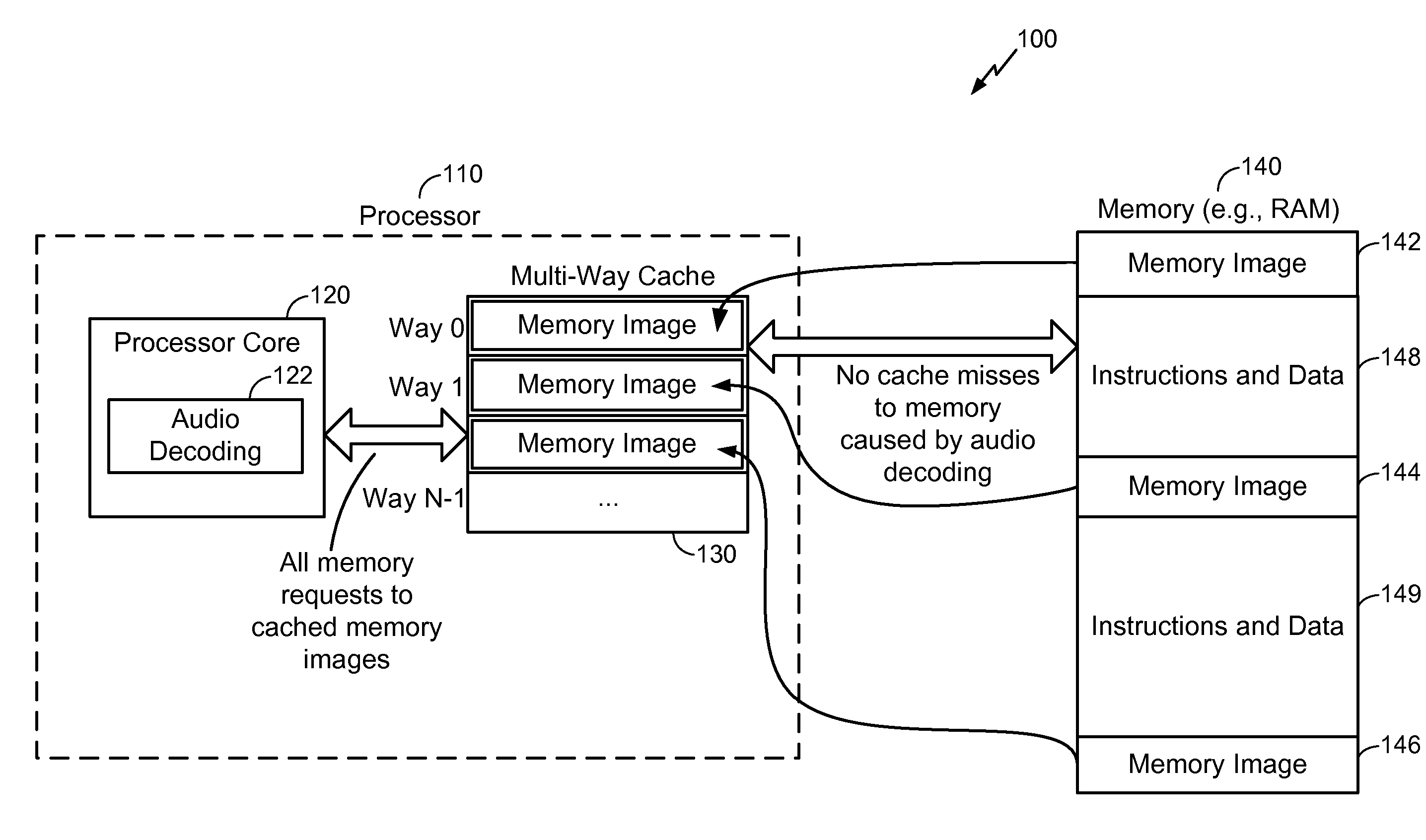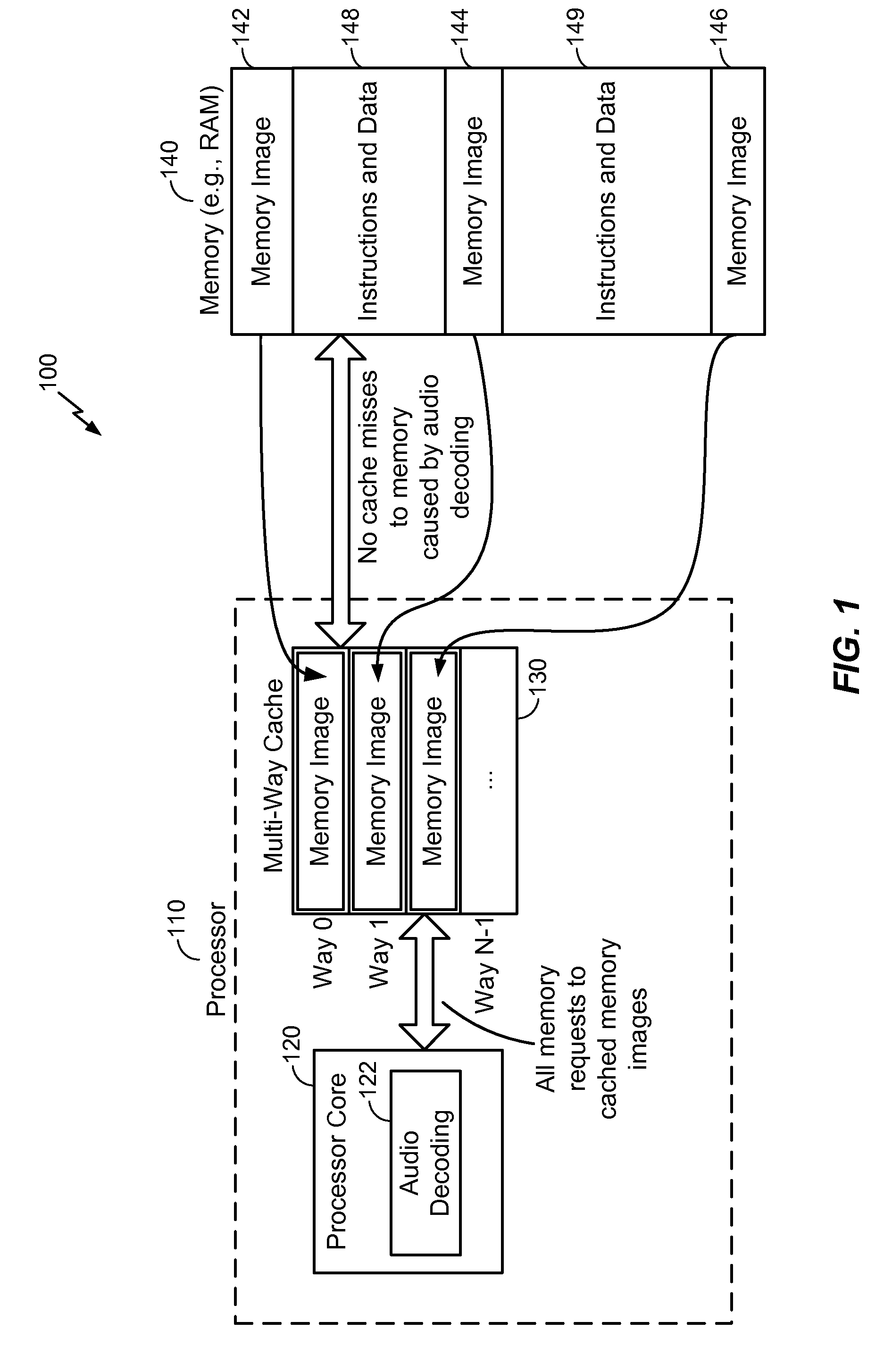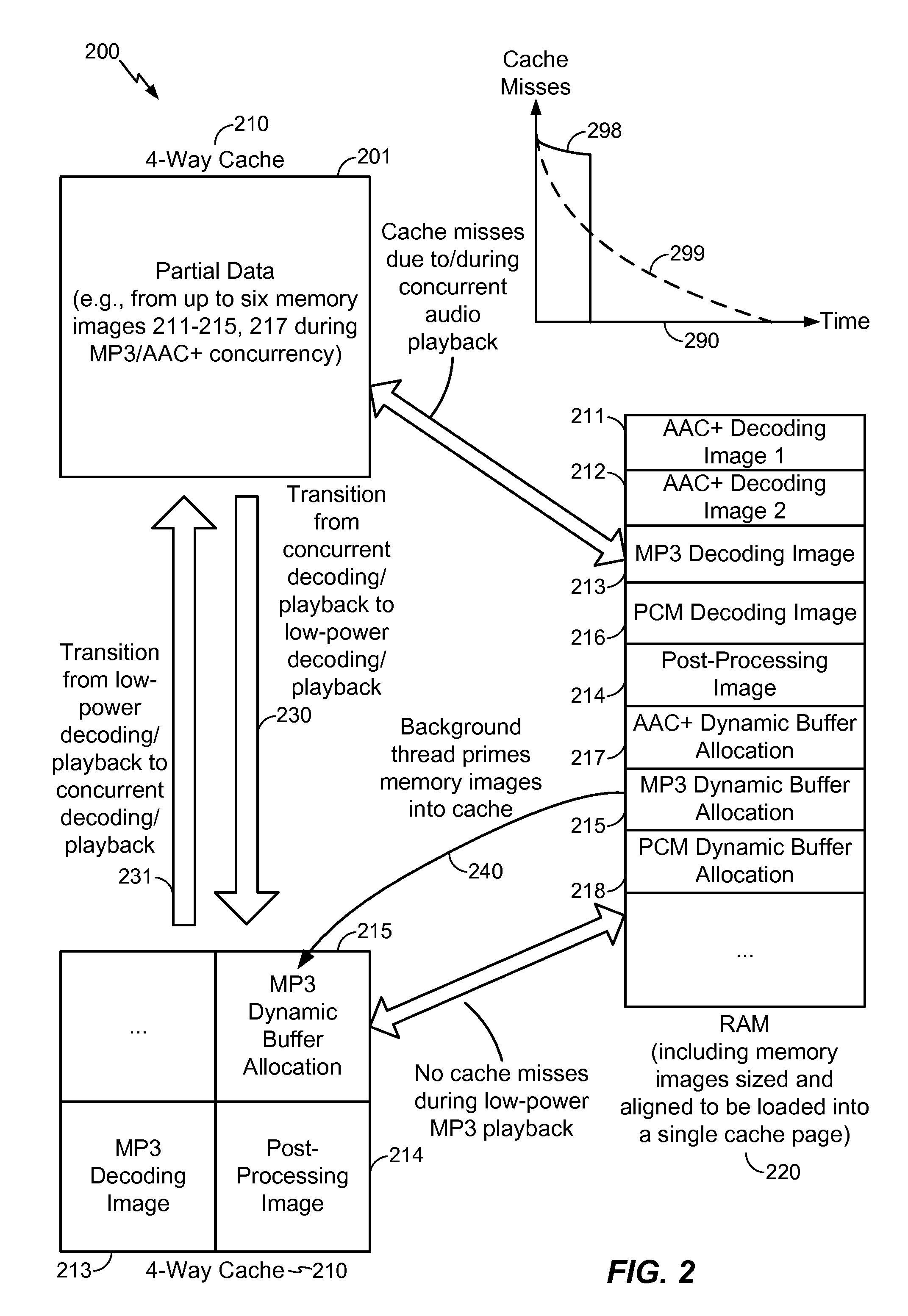Low-power audio decoding and playback using cached images
a low-power audio decoding and audio playback technology, applied in the field of audio decoding and playback, can solve the problems of inability to properly fit information into the cache, instruction, and inability to properly accommodate all the required data in the cache, and achieve the effect of reducing power usag
- Summary
- Abstract
- Description
- Claims
- Application Information
AI Technical Summary
Benefits of technology
Problems solved by technology
Method used
Image
Examples
Embodiment Construction
[0022]FIG. 1 is a block diagram to illustrate a particular embodiment of a system 100 to perform low-power audio decoding and playback using cached images. The system includes a processor 110 and a memory 140. The processor 110 may include a processor core 120 and a multi-way cache 130. During operation at the processor 110 (e.g., based on operation of the processor core 120), data may be loaded from the memory 140 to the multi-way cache 130. For example, the multi-way cache 120 may store data from portions of the memory 140 that are recently used or frequently used by the processor 110.
[0023]The processor 110 may be a general purpose processor or a digital signal processor (DSP). In a particular embodiment, the processor 110 is an audio DSP, and the processor core 120 includes one or more audio decoding blocks (e.g., illustrative audio decoding block 122). The audio decoding block 122 may include hardware circuitry and / or may execute software operable to decode particular types of ...
PUM
 Login to View More
Login to View More Abstract
Description
Claims
Application Information
 Login to View More
Login to View More - R&D
- Intellectual Property
- Life Sciences
- Materials
- Tech Scout
- Unparalleled Data Quality
- Higher Quality Content
- 60% Fewer Hallucinations
Browse by: Latest US Patents, China's latest patents, Technical Efficacy Thesaurus, Application Domain, Technology Topic, Popular Technical Reports.
© 2025 PatSnap. All rights reserved.Legal|Privacy policy|Modern Slavery Act Transparency Statement|Sitemap|About US| Contact US: help@patsnap.com



